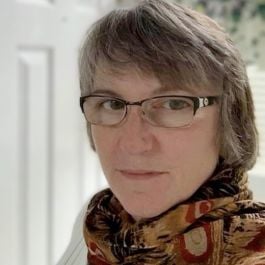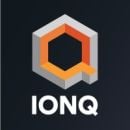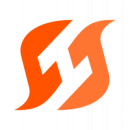Nearly half of working women in the United States admit they have faced discrimination on the job because of their gender.
A survey by Pew Research Center found that, among employed adults, women are about twice as likely as men — 42 percent versus 22 percent — to say they have experienced gender discrimination at work, namely in the form of promotion disparity.
Admittedly, the biggest obstacle to women’s progression isn’t the glass ceiling. It starts at the entry level with the so-called broken rung.
Picture a broken ladder: How are women to shatter the glass ceiling if they’re prevented from reaching it?
Inequity By the Numbers
For every 100 men promoted and hired to manager, only 72 women are promoted and hired.
Despite the long-term impact the broken rung has on the talent pipeline, both HR leaders and employees underestimate the problem and its effect on the representation of women in their organization. The tech industry is still decades away from reaching gender parity, but for every company lacking progress, there’s another supporting women on their journey toward leadership and paving the way for a future where workplace equality is a tangible reality.
Built In recently sat down with leaders from IonQ, FireHydrant and Rue Gilt Groupe to learn how they’ve felt supported in their careers and how they’re paying it forward.
IonQ is building the world’s best quantum computers to solve the world’s most complex problems.
How did mentors help you find opportunities for professional growth? Was there one person in particular who helped to mend the so-called broken rung?
Coming from a family of seven girls — and attending an all-girls high school — I grew up surrounded by strong women and great mentors. Not only was my college dean very supportive, but so was my manager at Raytheon, my first job postgrad. Being a shift leader there was a huge education in itself, and I was lucky to have a manager who helped me navigate my career.
One of the things that has served me well is advocating for myself. If you build yourself a reputation as honest and hardworking, others will listen. My advice is to find the managers who listen and answer questions; it is they who make the higher rungs accessible.
“If you build yourself a reputation as honest and hardworking, others will listen.”
Many early career professionals find a first promotion to be the most difficult to achieve. How do you support early-career women in your workplace?
I go out of my way to support fellow women in any department, at any company. There was one woman I mentored with whom I’d have coffee every Wednesday. She always came prepared with questions, and it was nice to see her invest in herself and grow in confidence.
It’s important to trust the people you work for. You might not love everyone on your team but try to be the bridge and not the hammer that splits you apart. One woman working for me now is the very definition of a bridge builder. She believes in herself and is very hardworking, and therefore, her position has improved mine daily. She’s not afraid to say she doesn’t know something and asks questions when they arise — I hope she takes my seat when I retire
Structurally, how does your company foster growth for women on the team? What resources or opportunities exist to help build equity?
I appreciate how IonQ fosters relationships with the women at the company. We have a diversity, equity and inclusion council and a women-led focus group, both of which are very engaging. We also take part in events for International Women’s Day and host trainings like “Recruiting Toolbox: Predicting Success.”
When I started, there weren’t any women in customer-facing leadership, but now there are several women in executive and senior staff roles who are spectacular. IonQ makes a real effort to spread the wealth of opportunities so everyone can learn about — and from — their coworkers. Across the board, there are great women at IonQ, and our camaraderie is really special.
FireHydrant is building technology that helps every software team to develop better and reliable software.
How did mentors help you find opportunities for professional growth? Was there one person in particular who helped to mend the so-called broken rung?
I owe much to the people who helped me grow in my career. From my first manager at GitHub, Helen, to leadership mentors like Lynn, Anais, Coleen, Jim, Chris and Ian, I’ve been very lucky to be surrounded by incredible leaders who saw my potential and actively wanted to help me thrive.
This incredible network sponsored me, put my name in for projects and gave me advice on how to navigate the male-dominated industry that is tech. They were invested in my success and graciously sacrificed their time and reputation to help me in my career. Even today, I know I can rely on my network to help me make the best decision.
Making the move from frontend to full stack developer was a difficult jump, but Helen saw my potential, hired me and coached me through my first few months on the job. Her work inspired me to become a manager, and I’ve been passionate about engineering management ever since.
Because of the help of my network, I always strive to pay it forward by mentoring early-career folks and creating healthy environments for people of all backgrounds to thrive.
Many early career professionals find a first promotion to be the most difficult to achieve. How do you support early-career women in your workplace?
Our engineering team does a great job of embodying our company's value of continuous improvement. They are a low-ego team with different backgrounds and experiences working together to support each other’s growth. There is a heavy emphasis on teamwork, knowledge sharing and collaboration. Our leadership team is 50 percent women, and we hope to continue to attract more women who can learn and get to the next level while feeling supported and inspired.
While I’m still within my first 30 days at FireHydrant, in previous roles, I’ve been a huge driver of mentorship as part of engineering culture. I actively work to create safe environments to ask questions and include mentoring as part of senior engineering career expectations.
Structurally, how does your company foster growth for women on the team? What resources or opportunities exist to help build equity?
It starts at the top, and we set the bar high. From the hiring process to communication and team dynamics, equity is baked into every part of company culture.
First, we make every effort to remove barriers to entry on our teams in the hiring process and take pride in our hiring practices, which include salary transparency and equitable pay. Our hiring managers have completed specific training to reduce bias, focusing on skills-based conversation to make for a positive interviewing experience. Yet, inclusion doesn’t stop at the hiring process. Once you invite someone to the party, they need to feel welcome to stay. In my previous roles, I have helped create ERGs and mentorship programs, all of which I look forward to implementing here.
“Inclusion doesn’t stop at the hiring process. Once you invite someone to the party, they need to feel welcome to stay.”
Rue Gilt Groupe is connecting the next-generation shopper to world-class brands.
How did mentors help you find opportunities for professional growth? Was there one person in particular who helped to mend the so-called broken rung?
When I was a college student, I was only one of three women in several of my core engineering classes, so I realized early on the necessity of learning from those before me. Support and growth are not just about mentorship; repairing the “broken rung” requires a blend of mentors and allies at all levels of an organization.
In addition to the incredible mentors who invested in my professional growth, I sought connections with people who challenged their intrinsic biases. These allies actively promoted the work of women, inculcated inclusivity and fostered equity in their everyday work, and took the time to educate themselves on the challenges faced by immigrants and learn to pronounce our names properly.
As growth is not exclusively linear, it is important as a mentee to enrich discussions with your mentors by not only sharing your personal experiences as a woman, but in the spirit of mutualism, encouraging them to continually explore new ways to support women rising through the ranks.
Many early career professionals find a first promotion to be the most difficult to achieve. How do you support early-career women in your workplace?
I support early career growth and promotions in three ways.
As a leader, I instill the company culture and vision into our everyday work, but with an important tenet that perspectives from voices at all levels are critical. I provide my team with creative freedom and platforms for ideation. Through frequent 1:1 career path discussions, I can plan rotational tech projects that align with my team members’ growth interests and encourage them to apply for roles even if they meet only 60 to 70 percent of the requirements.
As a mentor myself, I know that finding the right one is a challenge. I strive to fill this gap and provide guidance as much as is welcomed.
As a hiring manager, I leverage the tools and resources provided by Rue Gilt Groupe that reduce bias in our hiring process. When we onboard a new team member, I strive to reduce company jargon and develop documentation so that there are little to no barriers for learning.
“I strive to reduce company jargon and develop documentation so that there are little to no barriers for learning.”
Structurally, how does your company foster growth for women on the team? What resources or opportunities exist to help build equity?
At RGG, approximately 65 percent of leaders director-level and above are women, and I’m proud to be one of them.
RGG’s commitment to fostering a culture where every associate has the opportunity to learn and grow serves as our strong foundation. Layered on top is our DEI Groupe, with representation across multiple departments and the shared goal of increasing DEI awareness through equitable education and the amplification of diverse voices, perspectives and experiences.
As a data science leader, I would be remiss if I didn’t acknowledge that recognizing and addressing equity initiatives starts with ensuring data sources are representative and unbiased. We implement fairness-aware machine learning techniques to ensure equitable outcomes for different demographic groups, address emerging issues and changing contexts and audit models and systems that could impact outcomes.











